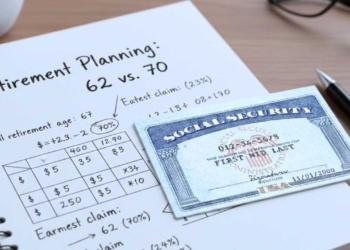The state of New Jersey still maintains the ANCHOR stimulus checks program, which stands for Affordable New Jersey Communities for Homeowners and Renters, active through the remainder of 2025. This program offers direct payments to residents to mitigate the impact of property taxes. NJ has one of the highest property taxes in the country.
The ANCHOR stimulus checks initiative seeks to provide economic stability to low- and moderate-income homeowners and renters, especially amid persistent inflation and rising housing costs. According to data from the New Jersey Department of the Treasury, nearly 2 million households are eligible to claim these payments, which began distribution on September 15, 2025, for the fiscal year 2024 cycle.
How are ANCHOR stimulus checks funded?
This program, funded by state surpluses and approved in the annual budget, is part of Governor Phil Murphy’s fiscal policy, which seeks to achieve greater equity, although it has faced criticism for its administrative complexity and delays in some cases (but this is not what we are here for; we will discuss it in future occasions).
The origin of this stimulus program dates back to the coronavirus pandemic, when the state sought to support families affected by the economic crisis. Replacing the more limited Homestead Benefit, ANCHOR expanded coverage to include renters and increased benefit amounts.
ANCHOR program update in 2025
In 2025, the program will operate under state law requiring an annual eligibility review, with updates to integrate other relief measures such as Senior Freeze (for those 65 and older) and Stay NJ (a new reimbursement program for seniors that begins payments in 2026).
The Department of Revenue has automated much of the process: On September 15, 2025, it filed applications on behalf of most eligible applicants under age 65 who do not receive Social Security disability benefits, based on 2021 application data.
Confirmation letters were sent on August 13, 2025, allowing recipients to update banking information or decline the benefit until September 15. This automation has streamlined the process, but has caused confusion for those who did not receive the letter and must apply manually.
NJ residents that are eligible for these stimulus checks
To begin, all those wishing to claim payment must have their primary residence in NJ and must have occupied their primary home there (whether as a homeowner or renter) by October 1, 2024.
Homeowners qualify if their New Jersey gross income in 2024 did not exceed $250,000, and their property was subject to local taxes. This includes single-family homes, condominiums, cooperatives, and continuing-care retirement communities where a proportional share of the tax is paid.
Second homes, vacation properties, properties with more than four units, or properties exempt from taxation (such as payments in lieu of taxes, or PILOTs) are excluded. For renters, the income limit is $150,000, and they must have paid rent on a taxable property, with their name on the lease.
Exceptions include subsidized or PILOT housing, but do not apply to college dormitories, exempt government housing, or properties owned by nonprofit organizations.
The ANCHOR stimulus check claim process
The application process is accessible but requires identity verification. Applicants can apply online through propertytaxreliefapp.nj.gov, where it integrates with ID.me to confirm identity using documents such as a driver’s license or passport, a step implemented in 2025 to prevent fraud. Alternatively, forms can be printed from the Department of Taxation website.
Remember that PIN codes are not sent by email; everything is handled digitally. Information is also not requested by phone, messaging apps, or SMS: avoid any of these unofficial contacts to avoid being scammed.
ANCHOR updates amounts
Quick Examples
• Homeowner, 40yo, $120K income: $1,500
• Homeowner, 70yo, $140K income: $1,750
• Renter, 30yo, $80K income: $450
• Renter, 68yo, $100K income: $700
Application deadline is looming
Those over 65 or receiving Social Security disability benefits should apply separately using the combined PAS-1 form, as automatic filing does not apply to them. In special cases, such as deaths after October 1, 2024, heirs or surviving spouses can claim the benefit by attaching documents such as death certificates, with payment issued in the name of the estate.
The deadline for all applications is October 31, 2025, and early applications are recommended for faster payments. Paper applicants receive checks by mail, while online applicants can opt for direct deposit. Initial proof of tax payment is not required, but the department may request it later.







